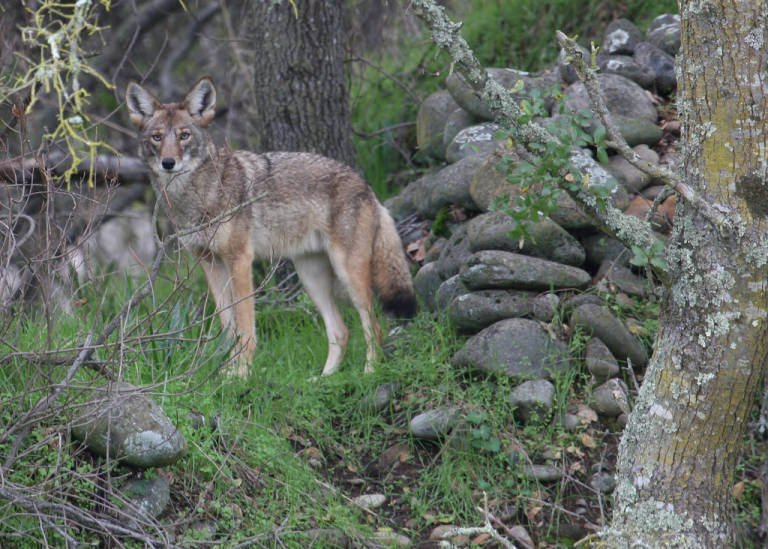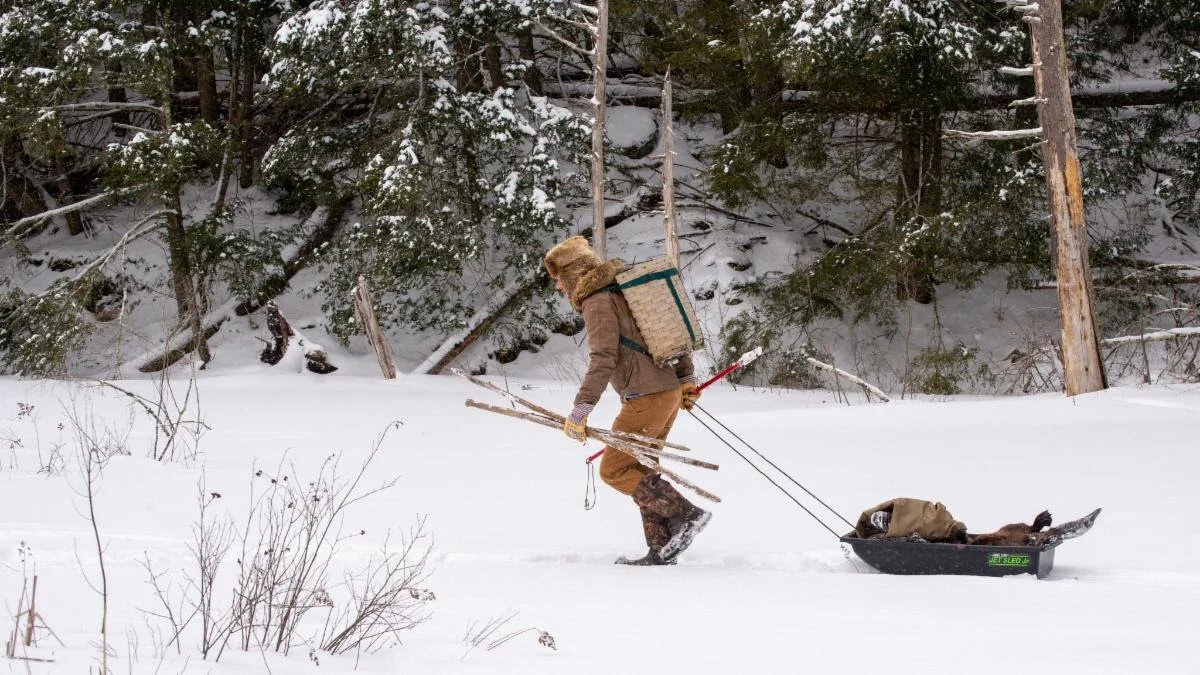State seeks public comment for new regs on trapping and hunting coyotes with dogs
May 25, 2023 | By Lisa Scagliotti Coyote photo courtesy Vermont Fish & Wildlife Department
The Vermont Department of Fish & Wildlife and the Vermont Fish and Wildlife Board are seeking public comment through June and will hold three public hearings on new proposed regulations for trapping and for hunting coyotes with the aid of dogs.
The new regulations are a result of laws passed in 2022 by the Vermont Legislature: Act 159, an act relating to best management practices for trapping, and Act 165, an act relating to hunting coyotes with dogs.
The trapping measure applies to trapping of fur-bearing species, specifically beaver, otter, marten, mink, raccoon, fisher, fox, skunk, coyote, bobcat, weasel, opossum, lynx, wolf, and muskrat. Some highlights of the proposed changes to trapping include:
A regulation requiring a safety buffer between public highways, trails on most state lands, and places where most traps can be set to reduce the risk of pets or people encountering traps.
Prohibition of using body-gripping traps on the ground except under specific criteria to reduce the risk of pets or non-target species being killed in traps.
A requirement that meat-based baits used to attract animals to traps be covered from sight, to reduce the risk of attracting birds of prey.
A requirement that live-trapped animals be killed immediately by the trapper, with a firearm, muzzleloader, bow, or crossbow, to give the animals a more humane death.
Trapper with beaver. Vermont Fish 7 Wildlife Department photo
Since the measure addressing coyote hunting was passed in 2022, the state has imposed a moratorium on hunting coyotes with the help of dogs in most circumstances until the new regulations are completed. Highlights of the proposal addressing coyote hunting are:
Limiting to 100 the number of hunters licensed to hunt coyotes with the aid of dogs in Vermont to track the scope of this practice.
Establishing a season from Dec. 15 through March 31, and a training season from June 1 through Sept. 15, when this practice may happen.
Requiring hunters to register their coyote-hunting dogs and to limit them to using four or fewer at a time.
Requiring that all dogs wear GPS and a control-collar unit at all times during a hunt to allow hunters to track and call off their dogs to minimize the risk of dogs trespassing on posted land.
Requiring that hunters report all coyotes killed during hunts with dogs.
Requiring that hunters kill coyotes hunted with dogs with a gun, muzzleloader, bow, or crossbow.
Details on both sets of legislative requirements, both sets of proposed regulations approved for public comment by the board earlier this spring, and additional recommendations from the department are available online at on the Fish & Wildlife Department's website page with the proposed best management practices for trapping and proposed changes to regulations for coyote hunting with dogs.
Public comments will be accepted through June 30. Comments may be submitted by email to ANR.FWPublicComment@vermont.gov with the subject line “trapping and coyote regulations.”
Two in-person public hearings and one online public hearing will be held to provide additional opportunity for comment. Those will be held at the following dates and locations:
June 20, 6:30-8:30 p.m. Rutland Middle School, 67 Library Avenue, Rutland.
June 21, 6:30-8:30 p.m. Montpelier High School, 5 High School Drive, Montpelier.
June 22, 6:30-8:30 p.m. Online via Microsoft Teams at: https://tinyurl.com/trappinghearing
Following public comment, department staff may make revisions and the board would then vote on the final version. Once those steps are completed, the new regulations are expected to go into effect in January 2024.
Reasonable accommodation at public hearings is available upon request for persons with disabilities. Anyone making such a request should describe the accommodation they need and include contact information in an email to abigail.connolly@vermont.gov or call 802-793-8777 (voice), 1-800-253-0191 (TTY).


